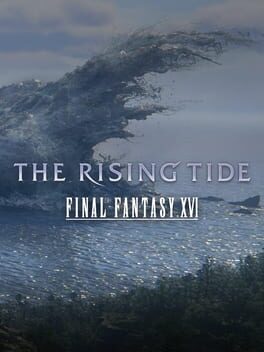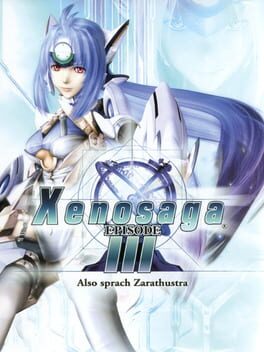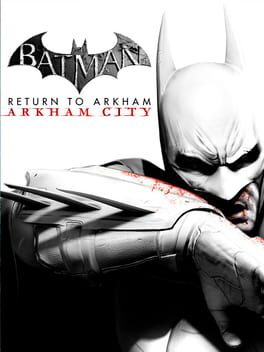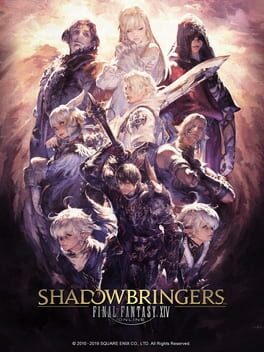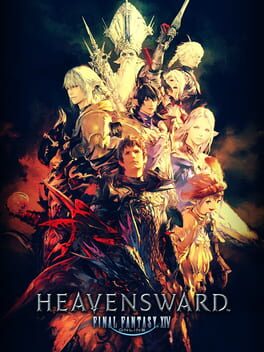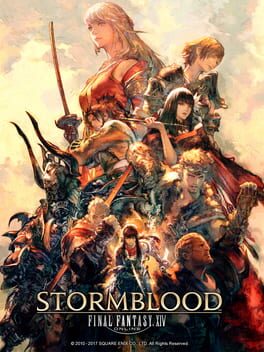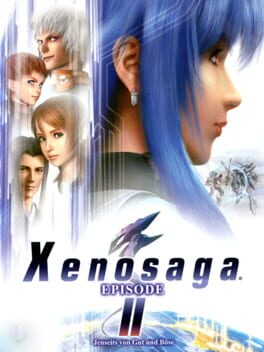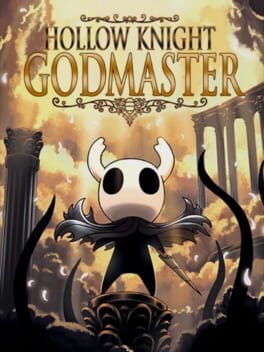Celicesama
This review will not contain major spoilers, though I will mark some sections with light spoilers if necessary.
Xenosaga Episode III is a game I approached with the highest of expectations. While not talked about nearly enough in the gaming landscape, especially compared to its Blade brethren, it is regarded among the finest of the MonolithSoft's Xeno titles amongst the series' diehard fans, and I was eager to see why.
Cut back to April of 2023 when I was playing through Xenosaga Episode I. Great a game as it was for its unique approach to storytelling and presentation that could only be attributed to the idiosyncracies of Tetsuya Takahashi, I wasn't digging the combat much and put the game on hold when I reached the insurmountable wall that was Doppelwogel (fuck you). I was also on somewhat of a Xeno-burnout having just finished Gears, Xenoblade 3, and its Expansion within a timeframe of a few months.
Eventually I figured the longer I put it on hold, the longer it would take for me to get to it again. I knew I would have to experience the Xenosaga series sooner or later, and so in August of 2023, I started a fresh playthrough of Xenosaga I and eventually beat it. It was a thoroughly awesome time, though admittedly not without some glaring flaws, 'specially in regards to presentation and game-balancing.
Xenosaga Episode II was a much harder sell for me the whole way through. I still beat it, riding off the momentum of Episode I, but it was the game where some of the Xenosaga franchise's issues begun to came to light, and so I became more and more worried as I slowly approached the Monolithic title (no pun intended) that was Xenosaga III). For the record, I adore a lot about Xenosaga II. Sure the combat and presentation are rough around the edges, but when it hits, it hits hard. Episode I had its moments, but II was the game, in spite of its issues, that really sold me on the storytelling potential of the series, in spite of the general issues that plagued both games.
Then we get to the main topic of this review: Xenosaga Episode III. As a result of my mixed experienced with Episode II, I now approached Episode III with equal parts astronomical expectations and the lingering feeling that it might fail the expectations it so highly set up for itself. It was only inevitable.
(Spoilers for the first cutscene in the game)
Then I saw the opening cutscene. I don't want to exaggerate too much, but this may be the best first cutscene I've ever seen in a game. We see a boy and mother walking through a ravaged planet, ushering him to safety and giving him a chance to escape while she transforms into a Gnosis. Yuki Kajiura's beautiful score emphasizes a palpable sense of tragedy that continually echoes throughout the game. Everything about this opening was beautiful. The moment I saw this scene, I knew this game was going to be special.
(spoilers end)
The first thing about this game that becomes apparent the moment we gain control of our characters is how it re-centers the story's focus on Shion Uzuki. Episode I's second half and Episode II admittedly endeared me a lot to Jr, who I still consider one of the series' best characters, so the change back to Shion is a good way of re-acclimatizing us to her shoes, especially since Episode II did a ton of damage to her character.
More so than Jr in II, or Shion in I, Shion's role in Episode III is of absolute importance, more so than any of her contemporaries, KOS-MOS aside. It doesn't take long for the game to make Shion endearing again, which is especially important considering the fact that we spent several hours with no combat whatsoever, following Shion's story as she reconnects with her friends on Fifth Jerusalem.
A lot of this game's structure is heavily reliant on Shion. Everything from her character interactions to the progression of the plot to the main conflict is so Shion-centric that it tends to overshadow every other plotline in the game. It's here we get to the game's first major flaw, being that anything that isn't adjacent to Shion's character or journey tends to feel like an afterthought. Ziggy's subplot with Voyager suffers the most from this, as we only get around 2 or 3 whole scenes dedicated to the conflict before it is resolved. Alas, the point of this review is not to linger on such things.
Discussions have been had about this game, and this series' in general, poor pacing. It applies mostly to the gunshot pace of disc 2, though the first disc does suffer from this as well, particularly in regards to the Miltia arc, which happens to be highly Shion-centric. Perhaps we spend a little too long here, though it doesn't bother me much.
On the complete other end of the spectrum, everything that is adjacent to Shion in this game is explored to a damn-near masterful degree. Once again, the game tends to keep Shion herself at arms-length from the player, only giving us bits and pieces of her psyche, that is, until we reach Old Miltia for the first time. Though the Miltia arc's pacing is not quite perfect, it re-emphasizes the game's aggressive focus on Shion's character and opens up her past for all to see.
It is from Shion's mind where the game really begins to click. Shion's past is ugly, unsightly, unfathomable, all of it. From her mind and experiences, we are allowed to examine much of the game's central ideas from a closer angle. Trauma, cycles, the nature of waves and how we can influence each other, the whole lot. It's a travesty that Shion is as disliked as she is by a good number of people, because her character and the way it links the games core ideas in a way that is equal parts cohesive and emotional is pure artistry in video game storytelling.
(minor spoilers for the best cutscene in the game)
All of this culminates in one moment, being Allen and Shion's confrontation with the Red Testament in Michtam's core. This is not the first video game to make me cry, although it is the very first to make me sob like a lost child. This cutscene in everything to me. Once again, Kajiura's masterful score only serves to strengthen my already potent emotions. Watching the resolve of Allen, KOS-MOS, and later Shion brings more than a couple of tears to my eye, all of them warranted.
(minor spoilers end)
And all of this beautiful writing around Shion doesn't say anything about Jr's mini-arc and his conflict with Yuriev, the masterful dynamic of Jin and Margulis and their perfect duel in the Zohar facility, which stands as far-and-away my favorite boss in any turn-based RPG and a reaffirmation of the game's stellar mechanics, the heart-wrenching pain of KOS-MOS and everything she's had to go through, and the game's beautiful presentation, most of which holds up to this day.
With this, I can say that in spite of the flaws that plague it, Xenosaga Episode III not only met, but surpassed my astronomically high expectations and then some, and absolutely lives up to the Xeno mantle that Xenogears had started. GOAT, raw, fire, Peak Motherfucking Fiction.
Xenosaga Episode III is a game I approached with the highest of expectations. While not talked about nearly enough in the gaming landscape, especially compared to its Blade brethren, it is regarded among the finest of the MonolithSoft's Xeno titles amongst the series' diehard fans, and I was eager to see why.
Cut back to April of 2023 when I was playing through Xenosaga Episode I. Great a game as it was for its unique approach to storytelling and presentation that could only be attributed to the idiosyncracies of Tetsuya Takahashi, I wasn't digging the combat much and put the game on hold when I reached the insurmountable wall that was Doppelwogel (fuck you). I was also on somewhat of a Xeno-burnout having just finished Gears, Xenoblade 3, and its Expansion within a timeframe of a few months.
Eventually I figured the longer I put it on hold, the longer it would take for me to get to it again. I knew I would have to experience the Xenosaga series sooner or later, and so in August of 2023, I started a fresh playthrough of Xenosaga I and eventually beat it. It was a thoroughly awesome time, though admittedly not without some glaring flaws, 'specially in regards to presentation and game-balancing.
Xenosaga Episode II was a much harder sell for me the whole way through. I still beat it, riding off the momentum of Episode I, but it was the game where some of the Xenosaga franchise's issues begun to came to light, and so I became more and more worried as I slowly approached the Monolithic title (no pun intended) that was Xenosaga III). For the record, I adore a lot about Xenosaga II. Sure the combat and presentation are rough around the edges, but when it hits, it hits hard. Episode I had its moments, but II was the game, in spite of its issues, that really sold me on the storytelling potential of the series, in spite of the general issues that plagued both games.
Then we get to the main topic of this review: Xenosaga Episode III. As a result of my mixed experienced with Episode II, I now approached Episode III with equal parts astronomical expectations and the lingering feeling that it might fail the expectations it so highly set up for itself. It was only inevitable.
(Spoilers for the first cutscene in the game)
Then I saw the opening cutscene. I don't want to exaggerate too much, but this may be the best first cutscene I've ever seen in a game. We see a boy and mother walking through a ravaged planet, ushering him to safety and giving him a chance to escape while she transforms into a Gnosis. Yuki Kajiura's beautiful score emphasizes a palpable sense of tragedy that continually echoes throughout the game. Everything about this opening was beautiful. The moment I saw this scene, I knew this game was going to be special.
(spoilers end)
The first thing about this game that becomes apparent the moment we gain control of our characters is how it re-centers the story's focus on Shion Uzuki. Episode I's second half and Episode II admittedly endeared me a lot to Jr, who I still consider one of the series' best characters, so the change back to Shion is a good way of re-acclimatizing us to her shoes, especially since Episode II did a ton of damage to her character.
More so than Jr in II, or Shion in I, Shion's role in Episode III is of absolute importance, more so than any of her contemporaries, KOS-MOS aside. It doesn't take long for the game to make Shion endearing again, which is especially important considering the fact that we spent several hours with no combat whatsoever, following Shion's story as she reconnects with her friends on Fifth Jerusalem.
A lot of this game's structure is heavily reliant on Shion. Everything from her character interactions to the progression of the plot to the main conflict is so Shion-centric that it tends to overshadow every other plotline in the game. It's here we get to the game's first major flaw, being that anything that isn't adjacent to Shion's character or journey tends to feel like an afterthought. Ziggy's subplot with Voyager suffers the most from this, as we only get around 2 or 3 whole scenes dedicated to the conflict before it is resolved. Alas, the point of this review is not to linger on such things.
Discussions have been had about this game, and this series' in general, poor pacing. It applies mostly to the gunshot pace of disc 2, though the first disc does suffer from this as well, particularly in regards to the Miltia arc, which happens to be highly Shion-centric. Perhaps we spend a little too long here, though it doesn't bother me much.
On the complete other end of the spectrum, everything that is adjacent to Shion in this game is explored to a damn-near masterful degree. Once again, the game tends to keep Shion herself at arms-length from the player, only giving us bits and pieces of her psyche, that is, until we reach Old Miltia for the first time. Though the Miltia arc's pacing is not quite perfect, it re-emphasizes the game's aggressive focus on Shion's character and opens up her past for all to see.
It is from Shion's mind where the game really begins to click. Shion's past is ugly, unsightly, unfathomable, all of it. From her mind and experiences, we are allowed to examine much of the game's central ideas from a closer angle. Trauma, cycles, the nature of waves and how we can influence each other, the whole lot. It's a travesty that Shion is as disliked as she is by a good number of people, because her character and the way it links the games core ideas in a way that is equal parts cohesive and emotional is pure artistry in video game storytelling.
(minor spoilers for the best cutscene in the game)
All of this culminates in one moment, being Allen and Shion's confrontation with the Red Testament in Michtam's core. This is not the first video game to make me cry, although it is the very first to make me sob like a lost child. This cutscene in everything to me. Once again, Kajiura's masterful score only serves to strengthen my already potent emotions. Watching the resolve of Allen, KOS-MOS, and later Shion brings more than a couple of tears to my eye, all of them warranted.
(minor spoilers end)
And all of this beautiful writing around Shion doesn't say anything about Jr's mini-arc and his conflict with Yuriev, the masterful dynamic of Jin and Margulis and their perfect duel in the Zohar facility, which stands as far-and-away my favorite boss in any turn-based RPG and a reaffirmation of the game's stellar mechanics, the heart-wrenching pain of KOS-MOS and everything she's had to go through, and the game's beautiful presentation, most of which holds up to this day.
With this, I can say that in spite of the flaws that plague it, Xenosaga Episode III not only met, but surpassed my astronomically high expectations and then some, and absolutely lives up to the Xeno mantle that Xenogears had started. GOAT, raw, fire, Peak Motherfucking Fiction.
This review contains spoilers
Gonna write another review because I don't think my previous one quite captured my thoughts on this game as well as I wanted.
While my initial lack of hype going into Armored Core VI barred my enjoyment of the game when I had first tried it in 2023, but having beaten it, gotten all endings, and platinumed the game, I can say with confidence that it's one of my favorite games ever at this point, I adore nearly everything about it.
The gameplay is easily among my favorite ever, with the ever-brilliant Masaru Yamamura, known for Sekiro, returning to direct. What surprised me most about the gameplay weren't the mechanics themselves per se, but just how well they were integrated with many of the characters, factions, and setting. I imagine Armored Core as a series does this well, though I can't really verify that due to my lack of experience with previous entries as of writing this review. The way certain characters' personalities and allegiances align with the equipment they use, and how that translates to the encounters with the many NPC fights, encounter design, and bosses is nothing short of incredibly thoughtful.
While the linearity of the levels and mission structure are a departure to my knowledge of Fromsoft's catalogue, I adore the atmosphere in nearly each and every one, and I imagine that it's pretty faithful to Armored Core's standards as a series. Chapter 4 needs special mention for just how moody it is throughout, crawling into an underground crevice and unearthing Rubicon's history. It's fantastic and contributes to what I feel is this game's strongest suit: the presentation.
Not the least of Armored Core VI's great accomplishments are the vistas and the way in creates scale in each level, though the level of presentation in the game's bosses and in special missions like "Breach the Karman Line" need to be noted. One of my favorite moments in any game ever was being able to fly energy-free and soar over Rubicon's scorched skies, realizing that 1000m is a straight up kilometer and how that distance is covered in the matter of seconds. The sense of climactic finality that whole mission and the encounter afterwards creates were pure sensory and mechanical bliss. While I do love this mission, I don't want people to misunderstand: I think nearly every mission in this game contributory to the vision insofar as they help construct the world, characters, and atmosphere in a palpable way, from destroying PCA fleets, to the aforementioned expedition into the depths, to the incredibly miscellaneous merc missions in chapter 1 that help the setting and factions get up on their feet.
All this isn't even to mention the stellar voice direction and sound design, which were robbed of a GOTY nomination. Audiovisual design is one reason Sekiro's combat is as good as it is, and ACVI is no different, with every shot, every boost, every melee hit, every explosion having an adequate and appropriate amount of impact in correlation to their lethality. Additionally exists the voice acting which really takes the characters to the next level. Having no face to their names really forces the voice actors to act their hearts out to convey the personality and emotions of these characters, and I can't think of a single bad casting decision. Special mention needs to be made of Griffin Burns as G5 Iguazu, who delivers a performance equal parts pathetic and heartrending, Jonathan Lipow as V.II Snail, who gives the character this sense of snobbish and contemptible superiority, Patrick Seitz, who embodies his role as the stern yet caring and surprisingly emotional Handler Walter with perfection, and last but not least Erin Yvette as our Coral Wife: Ayre, who allows this disembodied voice such an intelligent yet adorkable personality that surpasses characters with full blown bodies or mechs we can physically associate with them.
If I had to levy any nitpicks against this game, and this is probably as small as nitpicks can ever get, it'd be that I don't emotionally connect with the story that much. I think it is very, very, very good and I've got nothing bad to say about it, the characters are great, with the likes of Ayre, Walter, Carla, and especially Iguazu being downright fantastic, and I adore the way the story is presented via logs, mission briefings, arena flavor text, and most pertinently the mission structure themselves, and I love love love how much the endings feed into each other. Both the Liberator and Fires ending would be solid on their own, but knowledge of the other ending really elevates your understanding of the setting and characters in a way the multiple ending structure of previous FS games I've played haven't really captured. All this to say, I think the story is great, beautifully presented, and particularly potent towards the end; I've just seen similar stories done in a much better way, or rather more palpably so that I'm able to better resonate with emotionally (see Xenosaga). The efficiency of the characterization and storytelling, mechanics, and presentation are definitely this game's strongest suits and carry the experience into the exosphere, though I don't want to take anything away from the narrative itself. I don't think about the game's core themes as much as I love to immerse myself in the world and gameplay. That's more of a positive if anything and exemplifies the medium's greatest strengths: its ability to uniquely draw the player in immerse them in the experience.
We'll see how future me will feel about this game, but right now, I've come out this experience wholly confident in its vision, and I hope to see more like it from both previous AC games and whatever Yamamura continues to direct in the future. Would've been my GOTY had I committed to it last year, and easily one of my favorite experiences in recent memory. Special game.
"You may yet fly higher. Beyond Rubicon's scorched skies, to chase the freedom we never knew."
While my initial lack of hype going into Armored Core VI barred my enjoyment of the game when I had first tried it in 2023, but having beaten it, gotten all endings, and platinumed the game, I can say with confidence that it's one of my favorite games ever at this point, I adore nearly everything about it.
The gameplay is easily among my favorite ever, with the ever-brilliant Masaru Yamamura, known for Sekiro, returning to direct. What surprised me most about the gameplay weren't the mechanics themselves per se, but just how well they were integrated with many of the characters, factions, and setting. I imagine Armored Core as a series does this well, though I can't really verify that due to my lack of experience with previous entries as of writing this review. The way certain characters' personalities and allegiances align with the equipment they use, and how that translates to the encounters with the many NPC fights, encounter design, and bosses is nothing short of incredibly thoughtful.
While the linearity of the levels and mission structure are a departure to my knowledge of Fromsoft's catalogue, I adore the atmosphere in nearly each and every one, and I imagine that it's pretty faithful to Armored Core's standards as a series. Chapter 4 needs special mention for just how moody it is throughout, crawling into an underground crevice and unearthing Rubicon's history. It's fantastic and contributes to what I feel is this game's strongest suit: the presentation.
Not the least of Armored Core VI's great accomplishments are the vistas and the way in creates scale in each level, though the level of presentation in the game's bosses and in special missions like "Breach the Karman Line" need to be noted. One of my favorite moments in any game ever was being able to fly energy-free and soar over Rubicon's scorched skies, realizing that 1000m is a straight up kilometer and how that distance is covered in the matter of seconds. The sense of climactic finality that whole mission and the encounter afterwards creates were pure sensory and mechanical bliss. While I do love this mission, I don't want people to misunderstand: I think nearly every mission in this game contributory to the vision insofar as they help construct the world, characters, and atmosphere in a palpable way, from destroying PCA fleets, to the aforementioned expedition into the depths, to the incredibly miscellaneous merc missions in chapter 1 that help the setting and factions get up on their feet.
All this isn't even to mention the stellar voice direction and sound design, which were robbed of a GOTY nomination. Audiovisual design is one reason Sekiro's combat is as good as it is, and ACVI is no different, with every shot, every boost, every melee hit, every explosion having an adequate and appropriate amount of impact in correlation to their lethality. Additionally exists the voice acting which really takes the characters to the next level. Having no face to their names really forces the voice actors to act their hearts out to convey the personality and emotions of these characters, and I can't think of a single bad casting decision. Special mention needs to be made of Griffin Burns as G5 Iguazu, who delivers a performance equal parts pathetic and heartrending, Jonathan Lipow as V.II Snail, who gives the character this sense of snobbish and contemptible superiority, Patrick Seitz, who embodies his role as the stern yet caring and surprisingly emotional Handler Walter with perfection, and last but not least Erin Yvette as our Coral Wife: Ayre, who allows this disembodied voice such an intelligent yet adorkable personality that surpasses characters with full blown bodies or mechs we can physically associate with them.
If I had to levy any nitpicks against this game, and this is probably as small as nitpicks can ever get, it'd be that I don't emotionally connect with the story that much. I think it is very, very, very good and I've got nothing bad to say about it, the characters are great, with the likes of Ayre, Walter, Carla, and especially Iguazu being downright fantastic, and I adore the way the story is presented via logs, mission briefings, arena flavor text, and most pertinently the mission structure themselves, and I love love love how much the endings feed into each other. Both the Liberator and Fires ending would be solid on their own, but knowledge of the other ending really elevates your understanding of the setting and characters in a way the multiple ending structure of previous FS games I've played haven't really captured. All this to say, I think the story is great, beautifully presented, and particularly potent towards the end; I've just seen similar stories done in a much better way, or rather more palpably so that I'm able to better resonate with emotionally (see Xenosaga). The efficiency of the characterization and storytelling, mechanics, and presentation are definitely this game's strongest suits and carry the experience into the exosphere, though I don't want to take anything away from the narrative itself. I don't think about the game's core themes as much as I love to immerse myself in the world and gameplay. That's more of a positive if anything and exemplifies the medium's greatest strengths: its ability to uniquely draw the player in immerse them in the experience.
We'll see how future me will feel about this game, but right now, I've come out this experience wholly confident in its vision, and I hope to see more like it from both previous AC games and whatever Yamamura continues to direct in the future. Would've been my GOTY had I committed to it last year, and easily one of my favorite experiences in recent memory. Special game.
"You may yet fly higher. Beyond Rubicon's scorched skies, to chase the freedom we never knew."
2023
This review contains spoilers
Judging purely off of what this game gave me to think about and analyze, this has been one of the most thrilling experiences so far this year. XVI is a fascinating game and I think that's a feeling that always permeated throughout my playthrough. Sometimes the game will do something that perks my ears up and genuinely impresses me, and sometimes the game throws something at me so baffling that I can't even begin to comprehend that this team is the same that did Shadowbringers and Endwalker.
Before digging deep into why I feel this way, I want to say that first and foremost: XVI is a Final Fantasy game without a doubt in my mind. Is it an RPG in a traditional sense? Maybe not, but at least on a superficial level, the art direction, world, and especially the soundtrack exude a feeling not to dissimilar to how, say, FFXII made me feel.
Speaking of FFXII, I think that game is probably the one that XVI shares the most similarity to, largely attributed to Kazutoyo Maehiro, XII's combat designer, as the main writer. I have yet to play any other Ivalice game other than XII, but based of that and Heavensward, I'd say I'm a pretty decent fan of what Maehiro has done for the franchise in general. Heavensward was the expansion that made me fall in love with FFXIV, surprising me with just how cohesive and mature it was. I was hoping to get something similar out XVI's story, with it being advertised as more mature with the characters saying "fuck" every 5 goddamn seconds, as well as the game's fair share of nudity every now and then.
While I admire the game's sense of almost aggressive thematic cohesion with how it presents its world to us (with annoying, pacebreaking town quests), I just found the narrative to be very amateurish and barebones. FFXVI's story is an example of a young teen writer who thinks nudity and swears immediately make a story more mature (it does not), and that vibe kinda unfortunately sticks through a lot of the game. A story isn't immediately more mature just because characters have their tits or cock out and start spamming swears in chat like it's CoD. Rather, it's the reverse; I think more mature stories have to earn moments of intimacy (or the right to say fuck, idk).
The almost paradoxically ironic lack of maturity in conjunction with XVI's approach to theming (again, dumb town quests) really give the sense that the writers are struggling with how they want this game to come off tonally, even if it is fairly thematically consistent. I struggle to discern whether this game is a mature, medievalesque dark fantasy with posh-sounding characters, political intrigue (false as it may be), and sexual themes, or a rah-rah shonenesque power fantasy about the power of friendship and the importance of bonds. Undoubtedly its the latter, but I wish the game had just committed to that feel instead of lulling us into making us thinking it's more mature than it actually is. It makes those more conventionally mature scenes feel unwarranted, not only because they clash with the game's vision, but because the game could never commit to them to make them feel warranted to begin with.
Take Benedikta for example, who had all the makings of a fantastic character. The game almost explicity shows us that she was a rape victim, one who was miraculously granted the power of an Eikon, now holding a high position in the Kingdom of Waloed and exerting power over those below her, though her trauma and love for Cid continue to haunt her in spite of it all; she reminds me a lot of Ramsus from Xenogears in that regard. Now, could the game have kept her as a recurring antagonist, and as a result, exploring her trauma and relationships to a greater degree? Yes, but instead they sacrificed her for the sake of Clive's new powerup and a cool spectacle fight (it wasn't even that good tbh). It makes a lot of what they did show us, from her trauma to her intimate moment with Barnabas feel kinda... pointless? Nothing exasperates this more than when the game showed her again when Hugo was going through his thing with the crystal. It shows her NUDE for basically no other purpose than just to be nude. It comes off with all the weight and impact of thirteen y/o kids giggling when someone just so happens to have the nickname "dick", or when the teacher starts talking about sexual anatomy in class.
The tonal imbalance really hurts the story because it makes it difficult to get behind the aspects of its narrative that are actually decidedly mature, like the trauma of Clive and Jill, Anabella's ravaging of Rosaria, and with the advent of the Rising Tide DLC, the whole shtick with the baby and how cruelly they were treated by their ancestors. The game's story in that sense reminds me a lot of God of War Ragnarok's, where it feels like its more a caricature of a mature, well-written story as opposed to actually being one. It's "mature" in all the ways that would appeal to someone who gives little consideration to the things I had mentioned, but never in the ways that are important to my tastes and what I want out of similarly mature stories. It feels manufactured to be touching, heartfelt, and mature narrative, the gaming equivalent of Oscarbait essentially, but for me, it never earned that status. I guess that's just a me problem.
I went all this time without talking about the gameplay, which I find to be pretty good and honestly the most enjoyable part of the game. I've never played DMC so I can't make comparisons to Ryota Suzuki's work in those games, but I adore the gameplay in Dragon's Dogma and was hoping for something somewhat similar out of XVI. Different as it was, I still found it similarly enjoyable, if a bit easy. The difficult I find strange, because I don't really know how they could've made it harder aside from giving the enemies more damage and health. The movesets are usually fun to deal with, the basic gameplay loop of staggering your enemy and timing your cooldowns is always fun to execute. I don't really have that many criticisms for the combat itself aside from difficulty, and even then some bosses like Barnabas and Omega were fairly difficult and took a lot out of me.
My main issues are with the gear system and itemization, which I find really uninventive and kinda pointless. Clive's swords and armor are just all the same in terms of combat ability, with their only difference being in design and availability. It's unfortunate because gear is one of the most important tenets of RPG design, dictating the player's knowledge of a game's systems, and here it just feels shallow as hell. Really, only the rings have bearing on your playstyle, and I'll be totally fair, they are pretty interesting.
The skill system is cool though, and I love how you can mix and match different Eikon abilities to craft a playstyle that is right for you. While the game never emulated FFV's sheer variety like the devs had wanted, the Eikon abilities were just fun and varied enough to where I never got bored of checking them out every now and then. Odin I found particularly fun and I love how he fundamentally changes your playstyle. As someone who has Odin as their favorite recurring FF summon, I am satisfied.
The Eikon fights are probably this game's biggest highlights. Hot take, but I find them just kinda okay. Mechanically they're fine, with Ifrit's attacks feeling weighty, and they do get mechanically interesting from time to time. I just feel that for how bloated some of their healthpools are, I'm not content with winning just by hitting two buttons and seeing numbers pop up on the screen. I won't deny how great the presentation is, but even Bahamut and Titan, who are among the best presented bosses I've seen in gaming, are just kinda mechanical snoozefests that never stimulated me in any way that was memorable.
This is probably a good place to end. I came out of this game content with what it was and what it was trying to say, but to say that it resonated with me deeply or touched my soul would be a gross overstatement. A shame because with just a few tweaks to its writing and gameplay, it could've been something so so special. It lives and dies by the series' identity and is a Final Fantasy game through and through, but I never found myself moved by it in the same way a lot of my favorites from the series have. Overall, good game.
Before digging deep into why I feel this way, I want to say that first and foremost: XVI is a Final Fantasy game without a doubt in my mind. Is it an RPG in a traditional sense? Maybe not, but at least on a superficial level, the art direction, world, and especially the soundtrack exude a feeling not to dissimilar to how, say, FFXII made me feel.
Speaking of FFXII, I think that game is probably the one that XVI shares the most similarity to, largely attributed to Kazutoyo Maehiro, XII's combat designer, as the main writer. I have yet to play any other Ivalice game other than XII, but based of that and Heavensward, I'd say I'm a pretty decent fan of what Maehiro has done for the franchise in general. Heavensward was the expansion that made me fall in love with FFXIV, surprising me with just how cohesive and mature it was. I was hoping to get something similar out XVI's story, with it being advertised as more mature with the characters saying "fuck" every 5 goddamn seconds, as well as the game's fair share of nudity every now and then.
While I admire the game's sense of almost aggressive thematic cohesion with how it presents its world to us (with annoying, pacebreaking town quests), I just found the narrative to be very amateurish and barebones. FFXVI's story is an example of a young teen writer who thinks nudity and swears immediately make a story more mature (it does not), and that vibe kinda unfortunately sticks through a lot of the game. A story isn't immediately more mature just because characters have their tits or cock out and start spamming swears in chat like it's CoD. Rather, it's the reverse; I think more mature stories have to earn moments of intimacy (or the right to say fuck, idk).
The almost paradoxically ironic lack of maturity in conjunction with XVI's approach to theming (again, dumb town quests) really give the sense that the writers are struggling with how they want this game to come off tonally, even if it is fairly thematically consistent. I struggle to discern whether this game is a mature, medievalesque dark fantasy with posh-sounding characters, political intrigue (false as it may be), and sexual themes, or a rah-rah shonenesque power fantasy about the power of friendship and the importance of bonds. Undoubtedly its the latter, but I wish the game had just committed to that feel instead of lulling us into making us thinking it's more mature than it actually is. It makes those more conventionally mature scenes feel unwarranted, not only because they clash with the game's vision, but because the game could never commit to them to make them feel warranted to begin with.
Take Benedikta for example, who had all the makings of a fantastic character. The game almost explicity shows us that she was a rape victim, one who was miraculously granted the power of an Eikon, now holding a high position in the Kingdom of Waloed and exerting power over those below her, though her trauma and love for Cid continue to haunt her in spite of it all; she reminds me a lot of Ramsus from Xenogears in that regard. Now, could the game have kept her as a recurring antagonist, and as a result, exploring her trauma and relationships to a greater degree? Yes, but instead they sacrificed her for the sake of Clive's new powerup and a cool spectacle fight (it wasn't even that good tbh). It makes a lot of what they did show us, from her trauma to her intimate moment with Barnabas feel kinda... pointless? Nothing exasperates this more than when the game showed her again when Hugo was going through his thing with the crystal. It shows her NUDE for basically no other purpose than just to be nude. It comes off with all the weight and impact of thirteen y/o kids giggling when someone just so happens to have the nickname "dick", or when the teacher starts talking about sexual anatomy in class.
The tonal imbalance really hurts the story because it makes it difficult to get behind the aspects of its narrative that are actually decidedly mature, like the trauma of Clive and Jill, Anabella's ravaging of Rosaria, and with the advent of the Rising Tide DLC, the whole shtick with the baby and how cruelly they were treated by their ancestors. The game's story in that sense reminds me a lot of God of War Ragnarok's, where it feels like its more a caricature of a mature, well-written story as opposed to actually being one. It's "mature" in all the ways that would appeal to someone who gives little consideration to the things I had mentioned, but never in the ways that are important to my tastes and what I want out of similarly mature stories. It feels manufactured to be touching, heartfelt, and mature narrative, the gaming equivalent of Oscarbait essentially, but for me, it never earned that status. I guess that's just a me problem.
I went all this time without talking about the gameplay, which I find to be pretty good and honestly the most enjoyable part of the game. I've never played DMC so I can't make comparisons to Ryota Suzuki's work in those games, but I adore the gameplay in Dragon's Dogma and was hoping for something somewhat similar out of XVI. Different as it was, I still found it similarly enjoyable, if a bit easy. The difficult I find strange, because I don't really know how they could've made it harder aside from giving the enemies more damage and health. The movesets are usually fun to deal with, the basic gameplay loop of staggering your enemy and timing your cooldowns is always fun to execute. I don't really have that many criticisms for the combat itself aside from difficulty, and even then some bosses like Barnabas and Omega were fairly difficult and took a lot out of me.
My main issues are with the gear system and itemization, which I find really uninventive and kinda pointless. Clive's swords and armor are just all the same in terms of combat ability, with their only difference being in design and availability. It's unfortunate because gear is one of the most important tenets of RPG design, dictating the player's knowledge of a game's systems, and here it just feels shallow as hell. Really, only the rings have bearing on your playstyle, and I'll be totally fair, they are pretty interesting.
The skill system is cool though, and I love how you can mix and match different Eikon abilities to craft a playstyle that is right for you. While the game never emulated FFV's sheer variety like the devs had wanted, the Eikon abilities were just fun and varied enough to where I never got bored of checking them out every now and then. Odin I found particularly fun and I love how he fundamentally changes your playstyle. As someone who has Odin as their favorite recurring FF summon, I am satisfied.
The Eikon fights are probably this game's biggest highlights. Hot take, but I find them just kinda okay. Mechanically they're fine, with Ifrit's attacks feeling weighty, and they do get mechanically interesting from time to time. I just feel that for how bloated some of their healthpools are, I'm not content with winning just by hitting two buttons and seeing numbers pop up on the screen. I won't deny how great the presentation is, but even Bahamut and Titan, who are among the best presented bosses I've seen in gaming, are just kinda mechanical snoozefests that never stimulated me in any way that was memorable.
This is probably a good place to end. I came out of this game content with what it was and what it was trying to say, but to say that it resonated with me deeply or touched my soul would be a gross overstatement. A shame because with just a few tweaks to its writing and gameplay, it could've been something so so special. It lives and dies by the series' identity and is a Final Fantasy game through and through, but I never found myself moved by it in the same way a lot of my favorites from the series have. Overall, good game.
2017
This review contains spoilers
//Spoilers for Shadowbringers and Endwalker//
Shadowbringers is, more so than Endwalker was, an example of a game that attempts to present a philosophically compelling argument within the trite structure of an MMORPG. Don't get me wrong, I do love Endwalker and I do find it very philosophically compelling, no doubt, but something about the way Shadowbringers presents its quandary is infinitely more resonant, in my opinion at least.
One thing about A Realm Reborn that has unfortunately stuck with FFXIV throughout the whole runtime is the trite quest structure, which is a given considering that an MMORPG of this kind is built around those very ideas. That being said, one reason why Shadowbringers is just more bearable than FFXIV's swaths of fetchquesting is the pacing and the narrative, both of which more than make up for the game's mechanical shortcomings.
Easily the most compelling part of Shadowbringers is its attempt to use the narrative, pacing, and overall story structure to tell a rich philosophical narrative whose subtext is just as rich as the text, especially taking Endwalker's Elpis arc into account. In fact, without Elpis and the wonders it does for the likes of Hydaelyn and Hades, I don't think I'd love Shadowbringers as much as I do.
Like Xenogears did decades prior, what makes Shadowbringers' main conflict so compelling and engaging is not the physical confrontation between the Warrior of Darkness and Emet-Selch, but the ideological one, evident as it is as a result of Emet's subdued role for the majority of the story. In addition to the physical challenge, he is also giving you the chance to change his mind, akin to a Greek dialogue. Every single facet of Norvrandt, from Eulmore to Amaurot reflects each side of the argument, each serving as fundamental refutations to one another. The parallels to Plato's writing shouldn't be lost on us when Amaurot is a literal embodiment of a virtuous city, and the shards are literally called "reflections" in the same way the shadows are a reflection of his virtuous heaven (the real Amaurot in this case).
I'd be remiss to not mention the "thou must live, die, and know" scene from Endwalker, which, alongside the entire Elpis stretch, gives much needed context to both sides of the argument. Hell, the scene itself quite literally makes parallels to the final confrontation in Shadowbringers if that's any indication (as well as Venat's monologue paralleling the final dialogue of Xenogears, but that's a conversation for another time).
All in all, a beautiful expansion that is not only a great story in its own right, but one that's presented in such a philosophically compelling way that makes me appreciate much more upon further reflection. I didn't talk about 5.0's ending all that much, or even 5.3 and how that patch enhances the story further, because if I did I'd be here all day, though as it stands I do think Shadowbringers is my favorite XIV expansion, even if its by the tiniest of margins.
Shadowbringers is, more so than Endwalker was, an example of a game that attempts to present a philosophically compelling argument within the trite structure of an MMORPG. Don't get me wrong, I do love Endwalker and I do find it very philosophically compelling, no doubt, but something about the way Shadowbringers presents its quandary is infinitely more resonant, in my opinion at least.
One thing about A Realm Reborn that has unfortunately stuck with FFXIV throughout the whole runtime is the trite quest structure, which is a given considering that an MMORPG of this kind is built around those very ideas. That being said, one reason why Shadowbringers is just more bearable than FFXIV's swaths of fetchquesting is the pacing and the narrative, both of which more than make up for the game's mechanical shortcomings.
Easily the most compelling part of Shadowbringers is its attempt to use the narrative, pacing, and overall story structure to tell a rich philosophical narrative whose subtext is just as rich as the text, especially taking Endwalker's Elpis arc into account. In fact, without Elpis and the wonders it does for the likes of Hydaelyn and Hades, I don't think I'd love Shadowbringers as much as I do.
Like Xenogears did decades prior, what makes Shadowbringers' main conflict so compelling and engaging is not the physical confrontation between the Warrior of Darkness and Emet-Selch, but the ideological one, evident as it is as a result of Emet's subdued role for the majority of the story. In addition to the physical challenge, he is also giving you the chance to change his mind, akin to a Greek dialogue. Every single facet of Norvrandt, from Eulmore to Amaurot reflects each side of the argument, each serving as fundamental refutations to one another. The parallels to Plato's writing shouldn't be lost on us when Amaurot is a literal embodiment of a virtuous city, and the shards are literally called "reflections" in the same way the shadows are a reflection of his virtuous heaven (the real Amaurot in this case).
I'd be remiss to not mention the "thou must live, die, and know" scene from Endwalker, which, alongside the entire Elpis stretch, gives much needed context to both sides of the argument. Hell, the scene itself quite literally makes parallels to the final confrontation in Shadowbringers if that's any indication (as well as Venat's monologue paralleling the final dialogue of Xenogears, but that's a conversation for another time).
All in all, a beautiful expansion that is not only a great story in its own right, but one that's presented in such a philosophically compelling way that makes me appreciate much more upon further reflection. I didn't talk about 5.0's ending all that much, or even 5.3 and how that patch enhances the story further, because if I did I'd be here all day, though as it stands I do think Shadowbringers is my favorite XIV expansion, even if its by the tiniest of margins.
2006
(I consider 3.1-3.3 as part of Heavensward's main story)
I think Heavensward is a great expansion on its own, but the experience was wholly elevated because I named my WoL "John Darksouls". Not gonna elaborate on the similarities between either story, but giving my character a dumb name contextualized the narrative in such an unironically beautiful way. It also made me care so much more about my "bland" MMO character and gave him and indelible sense of importance in the world.
Ramblings about my unique circumstances aside, Heavensward is, as I said, an honest-to-god great expansion that both builds on the foundations laid by ARR and plants seeds for future plot developments to come. Adore it and I think I'm beginning to see why this game is so beloved. Warrants the Final Fantasy moniker and then some.
I think Heavensward is a great expansion on its own, but the experience was wholly elevated because I named my WoL "John Darksouls". Not gonna elaborate on the similarities between either story, but giving my character a dumb name contextualized the narrative in such an unironically beautiful way. It also made me care so much more about my "bland" MMO character and gave him and indelible sense of importance in the world.
Ramblings about my unique circumstances aside, Heavensward is, as I said, an honest-to-god great expansion that both builds on the foundations laid by ARR and plants seeds for future plot developments to come. Adore it and I think I'm beginning to see why this game is so beloved. Warrants the Final Fantasy moniker and then some.
